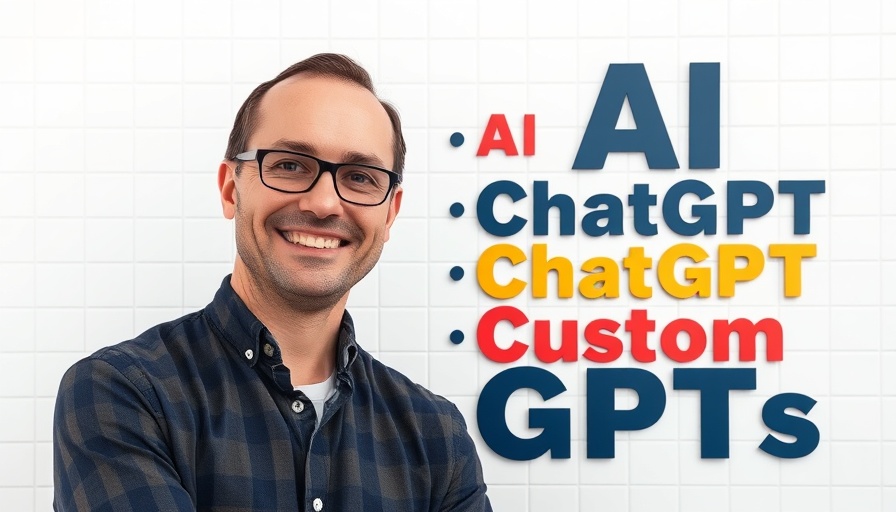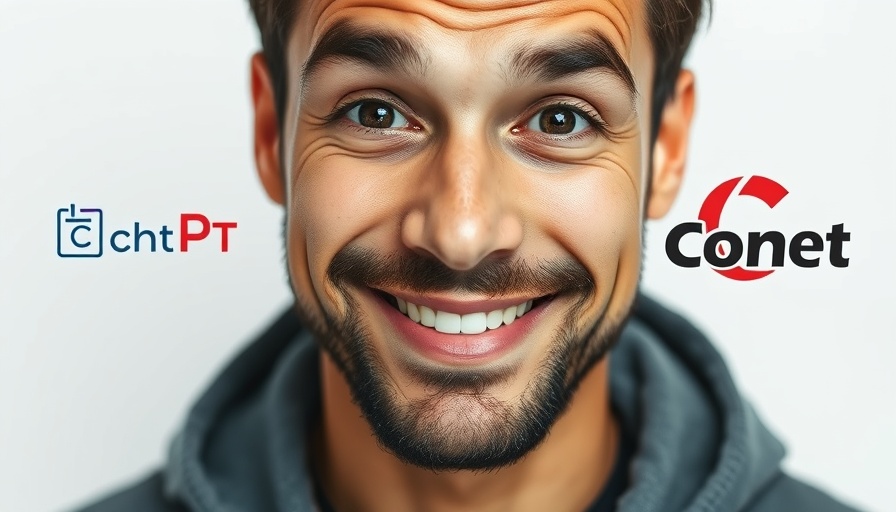
The Growing Landscape of AI Tools: A Critical Comparison
As businesses and individuals increasingly turn to artificial intelligence (AI) for productivity enhancements, tools like ChatGPT Projects, Claude Projects, and Custom GPTs emerge as essential resources. However, despite their superficial similarities, these tools harbor unique functionalities tailored for specific use cases. It's critical to understand these differences to optimize workflow, save time, and ultimately, reduce costs.
In 'ChatGPT Projects vs Claude Projects vs GPTs (What’s Right for You?)', the discussion dives into the nuances of these AI tools, uncovering key insights that prompted a deeper analysis on our end.
What's in a Name? Understanding the Differences
Many might assume that ChatGPT, Claude, and Custom GPTs perform equivalent tasks, but that can be a costly misconception. Each tool excels in certain areas. For instance, Claude Projects leverage a vast knowledge base, accommodating up to 200,000 tokens—about 500 pages of data—perfect for deep document analysis, whereas ChatGPT caps off at 128,000 tokens in its pro plan.
The context window is crucial. Tools designed for extensive knowledge integration, like Claude Projects, can effectively manage comprehensive reports and legal documents, while others like ChatGPT Projects are more suited for quick responses in discussions.
Collaboration Features: Who Can Work Together?
Collaboration is another defining aspect. Claude Projects enable seamless teamwork through shared workspaces, allowing multiple users to feed the same project continuously, fostering the 'shared brain' concept for ultra-cohesive teamwork. On the other hand, ChatGPT limits users to individual accounts—an isolation that can hinder communication and progress within teams.
This difference can affect efficiency, especially for teams handling complex tasks. In a content marketing scenario, for instance, teams using Claude would quickly access brand guides and market analysis shared among them, while those using ChatGPT would have to work in silos, reducing overall coherence.
Memory Architecture: The Heart of AI Learning
The memory architecture of these tools significantly affects user experience. Claude doesn’t just remember previous conversations; it references uploaded documents, ensuring continuity and relevance across sessions. In contrast, ChatGPT maintains context only within the same thread, making it less reliable for long-term projects unless users consistently remind the AI of the necessary context.
These capabilities might seem technical, but they have direct implications on user productivity. If you're navigating multi-week projects that require ongoing refinement, Claude's capability to remember context and previous conversations can save hours of repetitive work.
Tool Integration and Practical Use: Real-World Applications
How these tools integrate with other services aids their usability. ChatGPT boasts access to various OpenAI functionalities, including image generation and web browsing, all within a single workspace. This versatility is appealing for creative professionals who might want to shift quickly between writing and visual content generation. Conversely, Claude excels in deep research and can connect seamlessly with many external applications, making it an attractive option for analytical tasks.
Due to their different strengths, the choice between these tools can greatly influence your workflow—whether you prioritize creative versatility or data analysis capabilities. Custom GPTs, while limited in collaborative features, offer streamlined solutions for repeated tasks, making them ideal for specialized, smaller-scale projects.
Identifying Your Needs: Making the Right Choice
When selecting an AI tool, understanding your workflow requirements is essential. Are you handling extensive documents requiring deep integration and memory retention? Then Claude Projects is likely your best option. Conversely, if your needs are less about collaboration and more about creating single-use, consistent assistants, Custom GPTs can serve that purpose well.
As businesses explore these AI tools, the stakes are high. Opting for a solution that doesn't match your actual needs can exacerbate inefficiencies or inflate costs unnecessarily. Instead of shooting in the dark, thorough assessment based on your specific use case will help optimize productivity.
Conclusion: Choose Wisely to Maximize Productivity
The rapid evolution of AI tools presents an exciting opportunity for enhancing productivity, yet it also requires deliberate selection. By understanding the unique attributes of Claude Projects, ChatGPT, and Custom GPTs, users can tailor their choices to enhance operation effectiveness. It's not just about which tool does what; it’s about which tool does what best for you. Choosing wisely can streamline your operations and lead to significant time and money savings.
If you're a business owner looking to optimize your AI tools, consider joining communities focused on AI integrations, like the AI Playbook community, to share insights and strategies. Streamline your workflow today!
 Add Row
Add Row  Add
Add 




Write A Comment